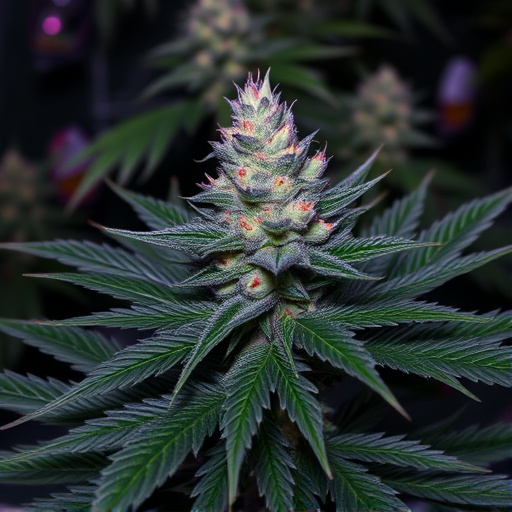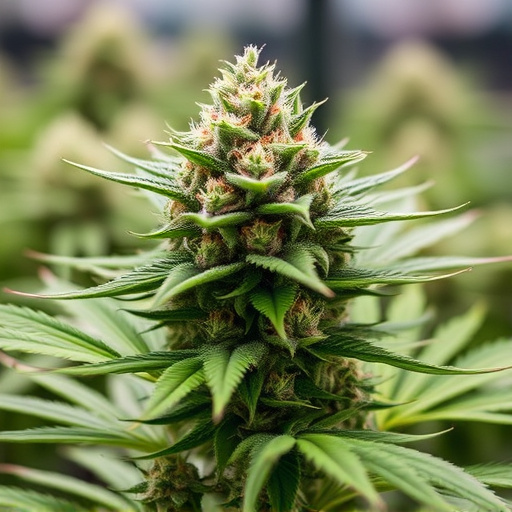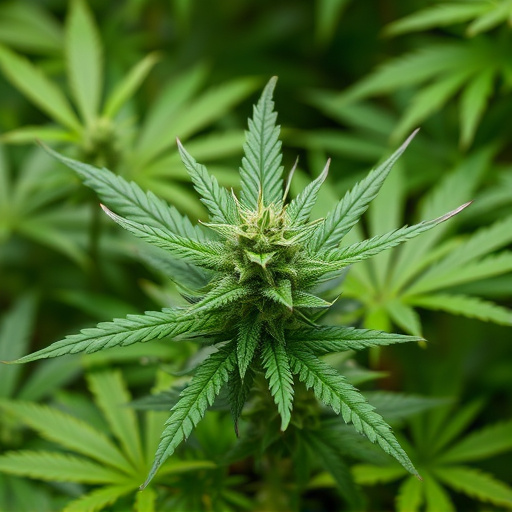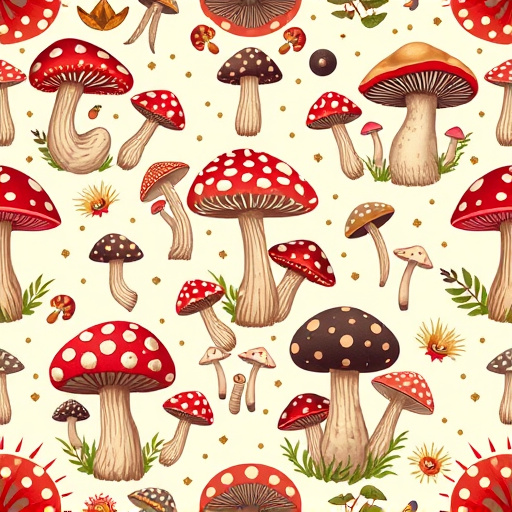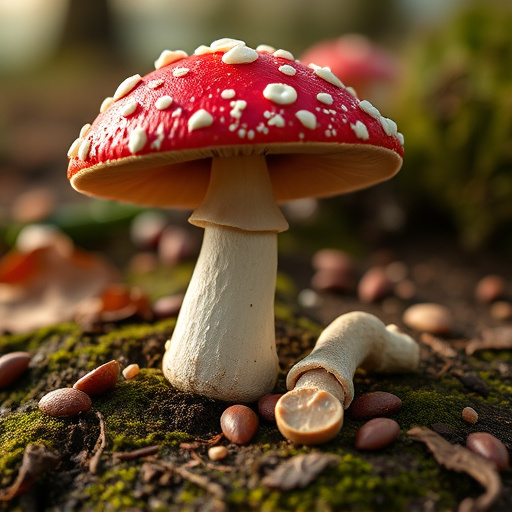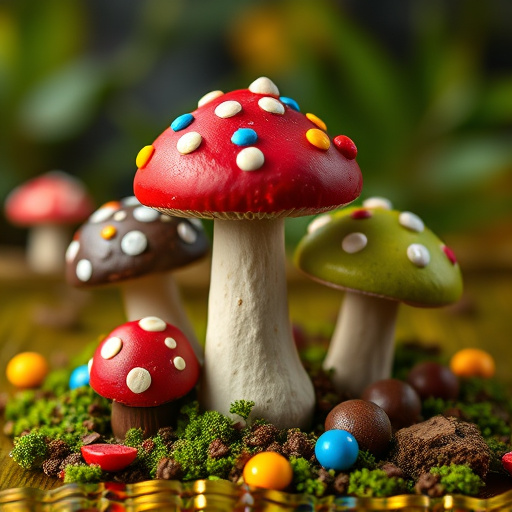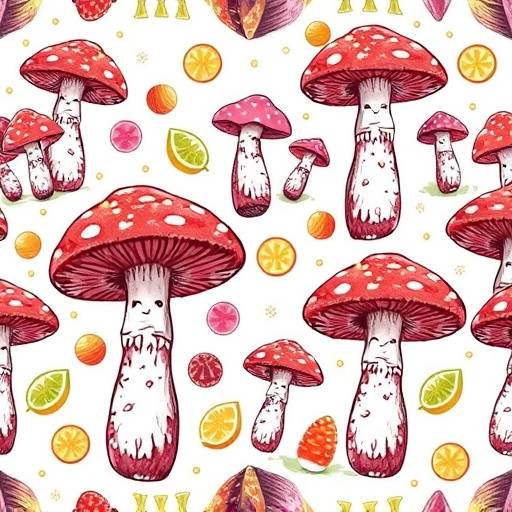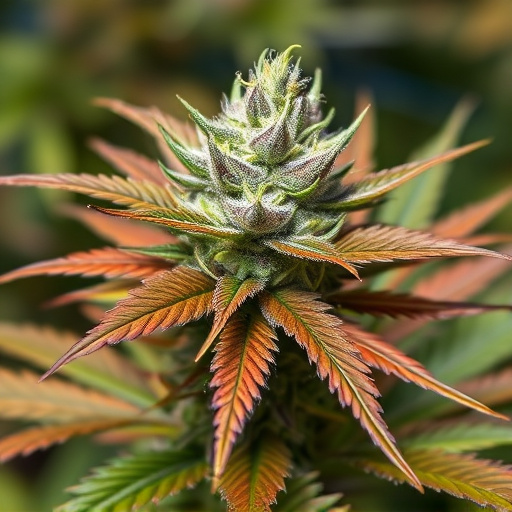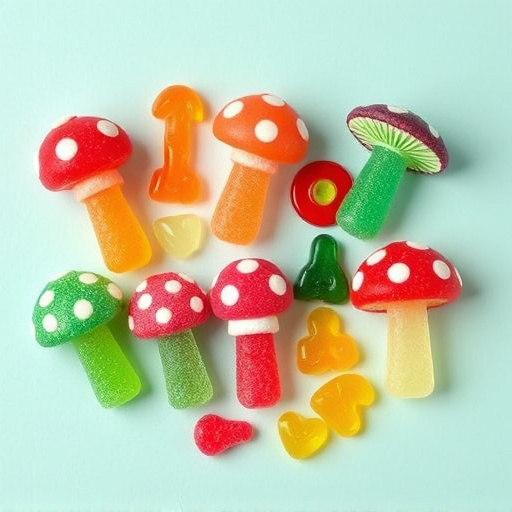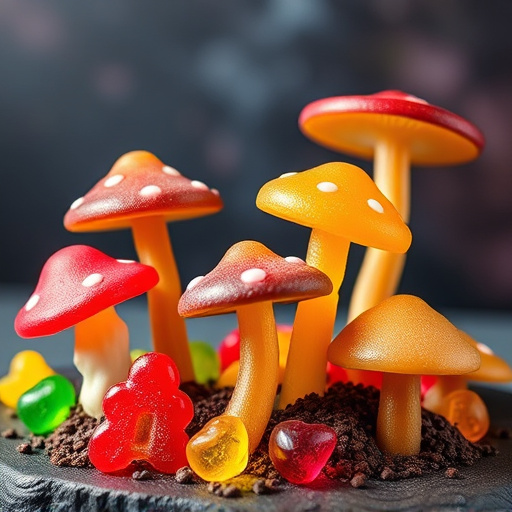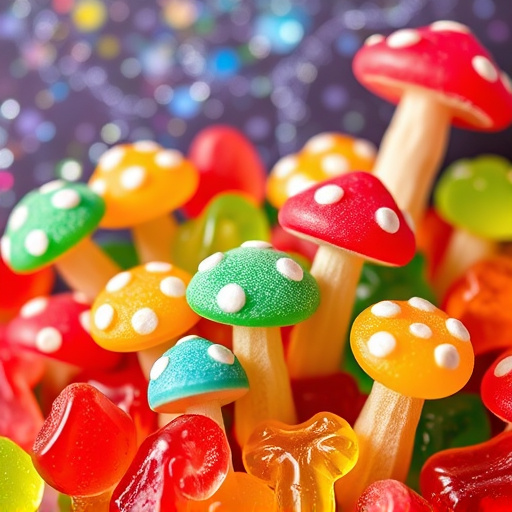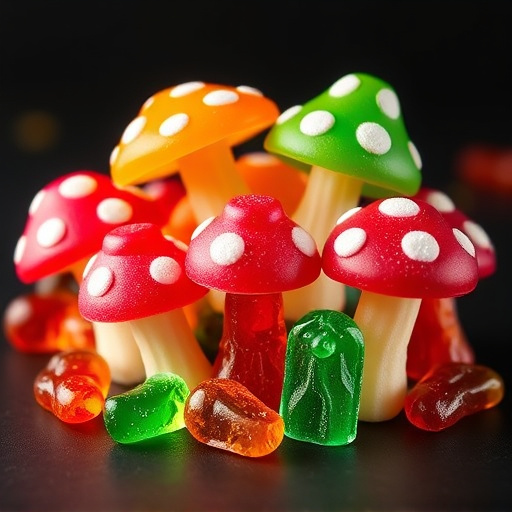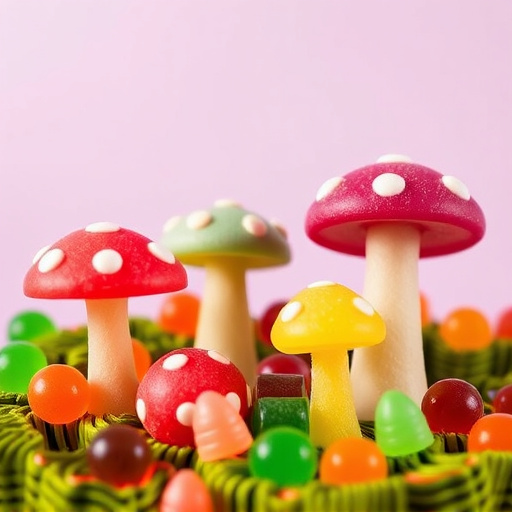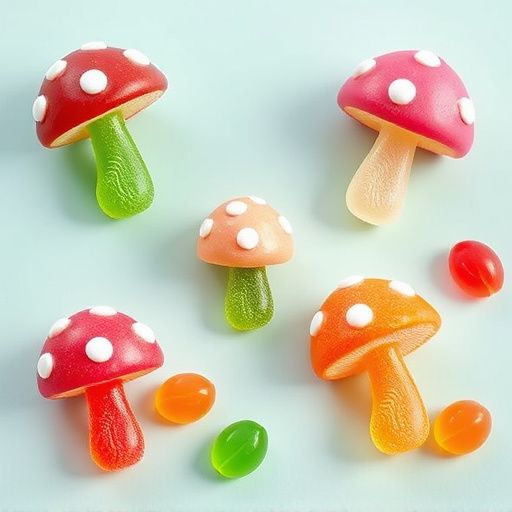Magic Mushroom Gummies, modern, palatable psilocybin delivery methods, show promise in enhancing brain plasticity – the brain's ability to adapt. With growing interest in therapeutic applications, these gummies may offer long-lasting positive changes for mood, perception, and cognitive function. Recent studies highlight their potential in treating depression, anxiety, and PTSD through psilocybin-assisted therapy, though risks like intense psychedelic experiences require caution and professional guidance.
Discover the captivating world of Magic Mushroom Gummies—a delightful fusion of traditional mushrooms and modern confectionery. This comprehensive guide explores the various types available, offering a unique twist on psychedelic experiences. We delve into the science behind their interaction with brain plasticity, uncovering potential benefits while also highlighting risks and considerations for consumption. Prepare to embark on a journey through the mind-bending effects and growing popularity of these intriguing treats.
- Understanding Magic Mushroom Gummies: A Comprehensive Overview
- The Science Behind Magic Mushrooms and Brain Plasticity
- Potential Benefits, Risks, and Considerations for Consumption
Understanding Magic Mushroom Gummies: A Comprehensive Overview
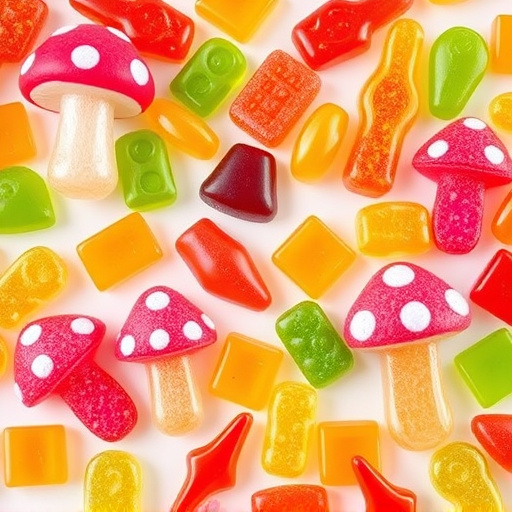
Magic Mushroom gummies are a modern twist on traditional psychedelic experiences, offering a convenient and often more palatable way to consume psilocybin mushrooms. These edible treats come in various shapes, sizes, and flavors, making them an appealing option for those seeking alternative forms of relaxation or spiritual exploration. Beyond their recreational use, there’s growing interest in the potential therapeutic benefits of magic mushroom gummies, particularly regarding brain plasticity.
Brain plasticity refers to the brain’s ability to adapt and reorganize its neural connections throughout life. Recent studies suggest that psilocybin, the active compound found in magic mushrooms, could stimulate neuroplasticity, potentially leading to long-lasting positive changes in mood, perception, and cognitive function. By enhancing brain connectivity, these gummies may offer novel approaches for treating conditions like depression, anxiety, and even addiction. As research continues to explore these avenues, understanding the interplay between magic mushroom gummies and brain plasticity opens exciting possibilities for mental health and wellness.
The Science Behind Magic Mushrooms and Brain Plasticity
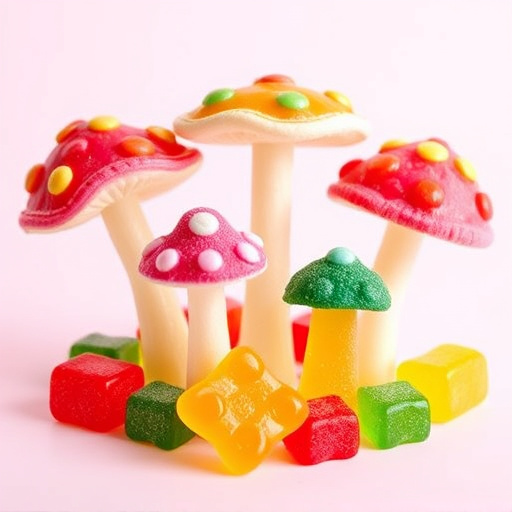
Magic mushrooms, scientifically known as Psilocybin mushrooms, have been a subject of interest in the field of neuroscience for their unique ability to alter consciousness and promote brain plasticity. Brain plasticity refers to the brain’s capacity to adapt and reorganize itself by forming new neural connections. When consumed, psilocybin, the active compound in magic mushrooms, is metabolized into psilocin, which binds to serotonin receptors in the brain. This interaction leads to a range of psychological effects, including altered perception, enhanced creativity, and increased feelings of connection with others and the environment.
Recent studies suggest that magic mushroom gummies, an edible form of these compounds, can offer therapeutic benefits related to brain plasticity. Research has indicated that psilocybin-assisted therapy may help individuals dealing with conditions such as depression, anxiety, and post-traumatic stress disorder (PTSD). The experience induced by magic mushrooms encourages introspection and emotional processing, potentially allowing for deeper insights and positive changes in mental health. This novel approach to mental wellness is gaining traction in the scientific community, opening doors to exploring the potential of these ancient organisms in modern medicine.
Potential Benefits, Risks, and Considerations for Consumption
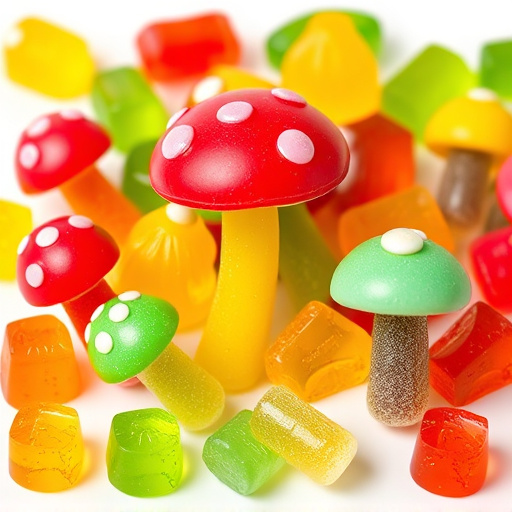
Magic mushroom gummies, much like their traditional counterparts, offer potential benefits that have sparked interest in both scientific communities and recreational users. Studies suggest that psilocybin, the active compound found in magic mushrooms, can promote brain plasticity—the ability of the brain to form new neural connections and adapt to change. This property has shown promise in treatments for depression, anxiety, and PTSD, where traditional therapies have been less effective. Furthermore, these gummies may enhance creativity, improve mood, and provide a unique perspective on personal issues.
However, it’s crucial to acknowledge the risks associated with magic mushroom gummies. Consuming them can lead to intense psychedelic experiences that may induce anxiety or paranoia in some individuals. Long-term effects are still being studied, but there is a potential risk of adverse reactions, especially for those with pre-existing mental health conditions. Additionally, the dosage and purity of these products can vary greatly, making it difficult to predict the exact effects. As such, it’s essential to approach magic mushroom gummies with caution, considering one’s physical and mental well-being, and always under professional guidance when exploring their potential therapeutic benefits.
Magic mushroom gummies represent a novel way to explore the potential therapeutic benefits of psilocybin, particularly in enhancing brain plasticity. While ongoing research continues to uncover the full scope of their effects, the current evidence suggests promising outcomes for mental health treatments. As with any psychedelic substance, however, careful consideration and responsible consumption are paramount. Understanding both the science behind magic mushrooms and their potential risks is essential before embarking on this unique journey.
